Interview
We are just days away from a decisive election in Côte d’Ivoire, marked by high pre-election tensions, the exclusion of some candidates, and controversy surrounding the candidacy of outgoing president Alassane Ouattara, who is seeking a fourth term. In this context, what are the real chances of the opposition candidates? Still in the race to discuss this with us today on Interviews is one of them Mr. Jean-Louis Billon, the country’s largest private employer and former Minister of Commerce.
Hello, Mr. Jean-Louis Billon. Thank you for accepting our invitation. You are a well-known businessman. Why did you decide to run for the highest office in the land? Is this a sudden impulse or a genuine political project? Jean-Louis Billon: Well, I’ve been in politics for about thirty years now. I’m both an economic and political analyst a rather rare combination. You say I’m a businessman, but it’s certainly not a whim. I’ve been a mayor, a council president, a minister, president of the Chamber of Commerce and Industry of Côte d’Ivoire, a member of the Economic and Social Council, and I’m currently a member of parliament. For a businessman to have held all these political offices I can tell you, some politicians finish their careers without achieving even 10% of what I’ve done in politics.
Ruth Lago: And for this election, you’re running under the banner of the CODE — the Democratic Congress. Is this the party of dissidents from the PDCI-RDA, your original party, which, let’s be honest, has somewhat turned its back on you? Why this choice?
JLB: It’s not a party of dissidents; it’s a coalition of several political parties. We’re more than twenty today because, since we started, others have joined us, including members from the PDCI myself among them supporting my candidacy. The parties making up the Democratic Congress are, in fact, often older than both the PPACI and the RHDP. They were founded long before and are established across the national territory. It’s a real political force today. We’re entering this race determined to win.
RL: Concretely, what are your chances in this presidential race? Some observers believe, rightly or wrongly, that your candidacy benefits the ruling power.
JLB: I’ll tell you this those are observers who don’t know Ivorian politics well. As I said from the start, my ambition is well thought out and long planned for Côte d’Ivoire. I am running to win. And I can tell you, it’s more difficult today for President Ouattara to convince Ivorians to give him five more years than it is for me to convince them to give me five years for real change. Ivorians want change a generational change. I’m the main challenger; that’s how I position myself, and I believe I have the best chance to win.
RL: What does your program include? What are its main priorities? JLB: My goal is to make Côte d'Ivoire an economically strong nation because an economically strong nation is a sovereign one.
Today, the country's growth is driven by public investment. With Jean-Louis Billon as president, it will be driven by the private sector. From the smallest business to the largest enterprise, including artisans, micro-businesses, and agriculture, the entire private sector will become the engine of growth.
RL: Let’s talk about national reconciliation. In your view, are the conditions in place for a peaceful, fair, and credible election?
JLB: I believe the elections will go well. Unfortunately, Côte d’Ivoire has always experienced pre- and post-election crises. But our democratic culture must now prevail. That’s why I’m maintaining my candidacy. Ivorians should not give in to calls for boycotts, protests, or unrest. Change is possible and we must achieve it through democratic means.
RL: Would you be willing to withdraw your candidacy in favor of a united opposition candidate?
JLB: I’m a right-wing conservative; Don Mello and Mrs. Gbagbo are left-wing, Henriette Lagou is centrist, and President Ouattara is even further to the right than I am. Why combcccine such centrifugal forces? That would only create inertia. What we need is unity of direction and I believe mine is the best path for Côte d’Ivoire. Outro RL: Mr. Jean-Louis Billon, thank you. And thank you all for watching. See you soon on Africanews and Africanews.com.




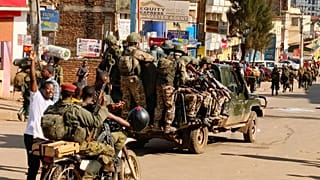
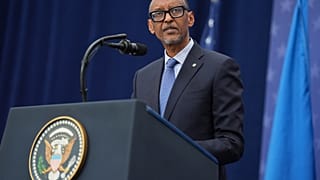
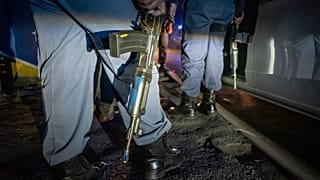
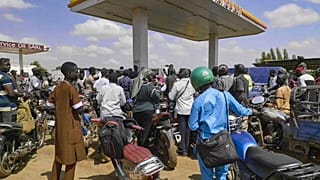
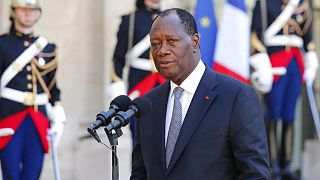
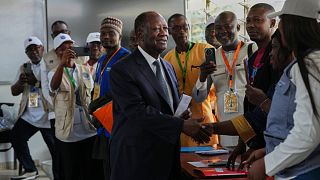
02:19
Cameroon: Douala mourns Anicet Ekane as questions remain over his death
00:50
Cameroon: Rival of President Biya dies in detention
00:51
Prominent Tunisian opposition figure arrested at protest in capital
01:11
General sworn in as interim leader of Guinea-Bissau after coup
01:06
Cameroon opposition leader flees to Gambia after contested election
01:09
Guinea Bissau goes to polls with president seeking a second term in office